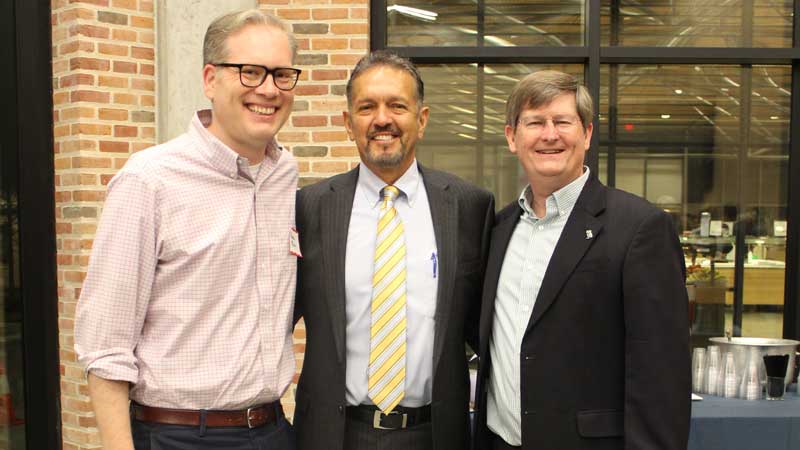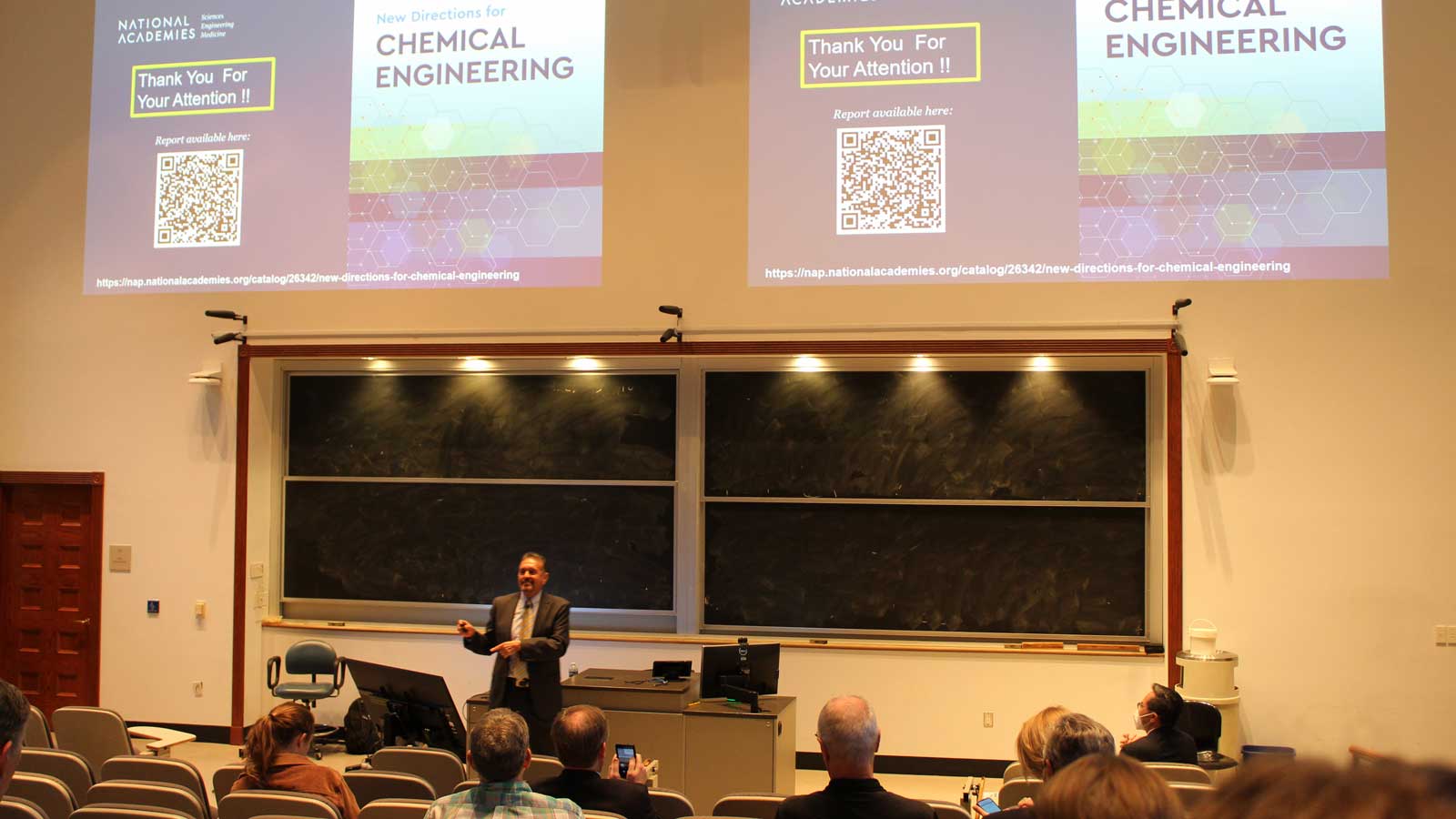The Department of Chemical and Biomolecular Department (ChBE) at Rice University hosted its annual Chevron Lecture on Energy with this year’s lecturer José G. Santiesteban.
Santiesteban, a Council Member and Board of Trustees of the National Academy of Engineering, spoke to the audience on new directions for Chemical Engineering. Santiesteban retired from ExxonMobil, where he served for more than 30 years in a number of technical leadership and management roles. His last assignment was as a strategy manager for ExxonMobil Research and Engineering Company. In this role, he led a team for developing strategic technology direction, providing research guidance, and ensuring the robustness of the research and development portfolio.
At the lecture, Santiesteban discussed how the work of chemical engineers has helped transform societies and the lives of individuals over the past century. He also talked about how chemical engineers have advanced from developing the synthetic fertilizers that helped feed the world to the development of novel materials used in fuels, electronics, medical devices, and other products. He also said their ability to apply systems-level thinking from molecular to manufacturing scales uniquely positions them to address today’s most pressing problems, including climate change and the overuse of resources by a growing population.

Santiesteban described a report — New Directions for Chemical Engineering — that details a vision to guide Chemical Engineering research, innovation, and education over the coming decades. This report calls for new investments in U.S. Chemical Engineering and the interdisciplinary, cross-sector collaborations necessary to advance the societal goals of transitioning to a low-carbon energy system. These efforts will ensure our production and use of food and water is sustainable. Chemical Engineers will also play important roles in developing medical advances and engineering solutions to health equity as well as manufacturing processes that produce both less waste and pollution. The report also calls for changes in Chemical Engineering education to ensure the next generation of Chemical Engineers is more diverse and equipped with the skills necessary to address the challenges ahead.
Following the lecture in Keck Hall, the event moved across campus to the new Sid Richardson College for a reception.

